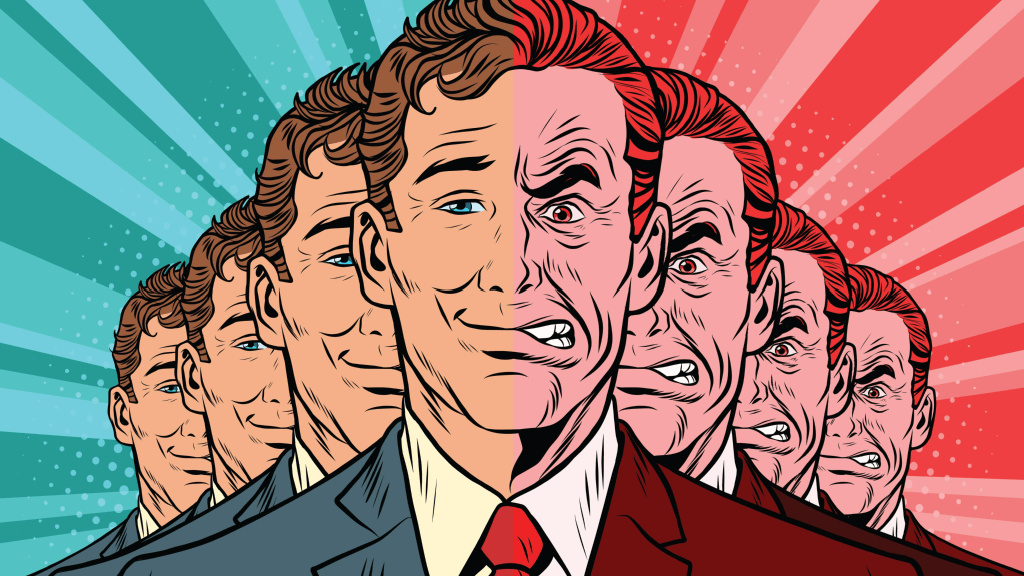Four Ways To Stop Being Passive-Aggressive
Hiding your feelings could do more harm than good.

One of the most common results of unchecked emotions is passive aggression. This occurs when you harbor ill or negative feelings toward a person or situation, but you do not address them. Instead, you bury those ill or negative feelings and let them fester.
When your passive aggression is left unchecked, unfavorable behaviors are bound to happen. You may experience a sudden outburst. You may choose to gossip with a friend or colleague to “vent.”
Or you may just burn out and shutdown mentally because you’ve let those feelings build up for too long. Whatever the case, there are things you can do to stop yourself from being passive-aggressive. Let’s take a look.
Label the Intensity and Root of Your Emotions
In the heat of the moment, it can be hard to pinpoint where your feelings come from. The first thing to remember is:
If you are feeling angry for example, remind yourself, I’m not angry…there is anger within me. Anger is not part of me, and it doesn’t define who I am.
Next, determine the intensity of your feeling. For example, are you upset? Annoyed? Furious? Pausing to take a moment to reflect on the intensity of your feelings can help reduce that intensity and pave the way for you to think clearer.
Finally, determine the root of your emotions. Why do you feel that way? Did someone else make you feel that way? Why? As you reflect on the root cause or the trigger of your feelings, you can plan to address the source.
Determine What Is in Your Control
As humans, we crave control. We don’t like surprises (except maybe the occasional gift or random act of kindness). Sometimes passive-aggressive behavior is caused by a perceived lack of control. And, when you can’t control the situation, you must find a way to let go. One way is to ask yourself, “Can I change my immediate situation?” “Is this in my control?” If it is, make a three-step plan to change the situation. If it is not, take a deep breath and let it go.
It takes time to get into the habit of analyzing your thoughts, but with proper practice, you will be able to find ways to put your mind at ease.
Be Brave
One of the reasons why passive-aggressive behavior is so common is because people sometimes are afraid to confront their triggers. For example, you could have a boss who micromanages the team to the point you get agitated every time he or she assigns you a project. Instead of keeping these feelings to yourself, picture yourself confidently addressing the issue at hand. Can you talk to your boss about their micromanaging in a productive and non-attacking manner?
Be sure to use “I feel” statements. Whatever you feel is an undeniable truth. However, if you try to assume what your trigger is feeling, you could be wrong. Consider this formula: When X happens, I feel Y. I’d like to reframe the situation but need your help. Conflict management is a very important skill to develop throughout all phases of your life.
Solicit Feedback
There are times when you may not even be aware you are demonstrating passive-aggressive behavior. If you establish open and honest communication with your colleagues, you are in a better position to receive honest feedback from them. Ask them if they feel you’ve demonstrated passive-aggressive behavior.
Maybe offer the chance for them to share a story about their own behavior. By soliciting feedback and creating a space to share experiences, you can learn ways of avoiding passive-aggressive behavior from one another. This works really well if you are in a leadership position. Your colleagues will feel valued and supported by your open communication and may even model your positive behavior.
Awareness is the number one key to combating passive aggression. Don’t hide your feelings too long or they will erupt. Instead, confront your emotions (after identifying them) head-on and work toward a solution that neutralizes your emotion and soothes your ego.
Salman Raza is founder and CEO of training and development consultancy Razalution Bureau
Thanks for signing up to Minutehack alerts.
Brilliant editorials heading your way soon.
Okay, Thanks!

